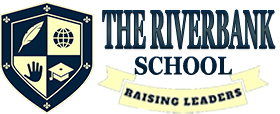Religious Education
Overview
The Religious Education Department at River bank secondary school encourages pupils to discuss what belief is, gain an understanding of different religions and investigate ethical and moral issues. Key aims of the department are:
- To stimulate and maintain an interest in Religious Education.
- To develop the pupils’ awareness of the relationship of modern day events to religion
- To enable pupils to have an understanding of the different religions and to help them become more tolerant members of the wider community
Curriculum
The curriculum covered in the Religious Education Department is as follows:
Year 7
Year 7 pupils start their studies by exploring the question ‘why do we study RE?’ During the Autumn term they explore the six major religions, investigating their founders, followers, symbols and key ideas. They also look at the important concepts of truth, belief and faith by developing their understanding of the ‘ultimate questions’ in the world in which we live. To consolidate pupils’ understanding of the six major religions in the Spring and Summer terms, there is a focus on the different religions’ understanding of what ‘God’ is, where we came from and their ‘rules for living’.
Year 8
Year 8 pupils focus on the practice of worship and belief in the six major religions and how this affects the lives of their followers. Pupils also explore the religions’ responses to violence, war, suffering and prejudice, asking whether evil exists in the world and, if so, discussing whether we can reconcile this with a belief in a ‘God’. Key figures from throughout history, such as Martin Luther King, Malcolm X, Gandhi and the Dalai Lama, are also included in the Year 8 curriculum.
Year 9
Pupils build on prior knowledge of the main religions in Britain. They consider the arguments to prove that God exists and explore religious change over time, adaptations of religion to civilising society and altering interpretations of religious context. Attitudes towards moral and ethical questions, such as ‘when are the beginning and end of life?’ or ‘is it ever right to kill?’ are considered. Conflict and terrorism are explored in the religious context, as well as media interpretations of religion.
Rooms and resources
The majority of teaching takes place in the classrooms. A wide range of resources are used in delivering the curriculum. These include a trolley of Laptops, interactive whiteboards, wowbii as well as a vast collection of video clips, PowerPoint presentations and online resources which students can access with ease using the tablets/ laptops
[gs_logo]




